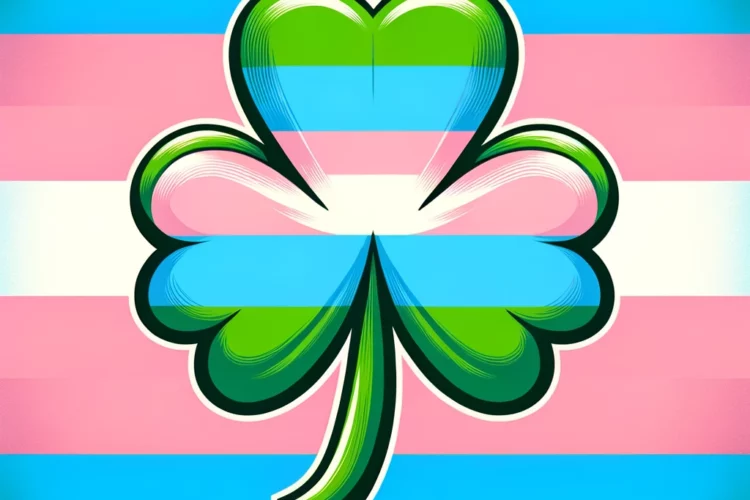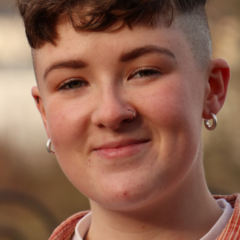23 January 2023, Ireland – Anti-gender mobilization and the complex ideologies that fuel it are difficult to define, even for its proponents themselves. As Grzebalska et. al (2017) state, it is an “empty signifier” for various right-wing, populist forces to coalesce behind. Anti-gender groups are an international phenomenon with varying degrees of influence and power. Abroad, these groups wield genuine political and cultural capital. In Ireland however, their threat is smaller.
Irish society prides itself on being modern and socially liberal, so right-wing extremism, in general, does not have the same foothold here as it does elsewhere.
Conservative, state-led anti-gender mobilization, such as what we have seen in Brazil (under Bolsonaro’s leadership), Russia, Poland and Hungary would be difficult in Ireland due to differences regarding its economic, political, and social climate. Anti-gender groups thrive in conditions where negative impacts such as poor socioeconomic conditions, low standards of living and dominant right-wing political parties impede the enactment of fair democratic processes. In countries where the general population is oppressed through fear and violence, political control can appear to be held by shadowy institutions outside the reach of the majority of citizens. Ireland, in general, offers high standards of living, and fair economic opportunities for its citizens, and is dominated by centrist political parties that avoid extremist views in favor of the middle ground. Thus, the conditions previously mentioned that enable conditions for anti-gender groups to thrive are lacking. However, to pretend it is not possible for anti-gender groups to exist and thrive in Ireland would be naive. Rather, I believe any potential anti-gender mobilization would mimic the media-driven, populist forms we have seen grow in power in the United Kingdom.
While anti-gender groups defy characterization and definition, they have several characteristics, recurring linguistic features and even common funding streams and leaders.
What separates anti-gender movements from regular populist movements is their creation and utilization of a moral panic around gender and sexuality, relying heavily on images of so-called “corrupted” children (Buschmann, 2017). By tying “gender ideology” to the death of civilization, personal matters become a topic of moral concern for wider society, in which one transgender person can supposedly bring down traditional family life and the very idea of masculinity itself (O’Sullivan & Krulisova, 2020). In such narratives, transgender and queer people are depicted as deviants and folk devils, with their power in these roles being overemphasized to justify institutional and socio-political control over such “deviance”.
As a political science student, I spent a portion of my degree studying the British TERF movement to determine whether they fit the characteristics of anti-gender mobilization. The UK and its “transgender moral panic” has been predominantly missing from the literature on anti-gender mobilizations. This oversight disregards how anti-gender ideology can adapt to more politically liberal countries that put an emphasis on a post-ideological consensus, “both sides” styles of political conversation, and respectability politics like in Ireland and the UK.
My research found that mainstream British broadsheets have successfully created a moral panic around transgender people, and their purported “harm to children,” is one of the core characteristics of this anti-gender rhetoric. Anti-gender ideology is becoming increasingly mainstream and normalized in British political institutions. As the U.K. is our closest ally, former colonizer, and the nation most deeply politically and socially intertwined with our own, Ireland faces a similar threat.
It is no secret that our British neighbors have devolved into state-sponsored transphobia, threatening the lives, safety, and care of its queer and transgender communities. Ireland is, unfortunately, not immune to this. Ireland and the UK have a complex and co-dependent relationship, and in the context of gender politics, it is no different. For the countless Irish women forced to seek abortion care abroad, their destination was England. Now, transgender people seeking medical care are forced to travel to the U.K. or to use U.K.-based services to access what should be provided here.
The intimate nature of the Irish-U.K. relationship means that our activist networks are also closely intertwined. As we have watched British feminism devolve into mainstream trans-exclusionary radical feminism, Irish feminists have faced repeated and extreme pressure to follow suit. In 2018, 1,000 Irish feminists wrote an open letter demanding British anti-trans feminists to stay out of Ireland after they attempted to tour Ireland to speak about restricting gender-equality reforms (O’Donohoe, 2018). British anti-trans feminists have consistently sought to widen their campaign to Ireland since Ireland passed a law that allowed self-identification of gender identity in 2015, with attempts by TERF groups for campaigns and conferences to be held and hosted in Ireland.
Ireland’s experience as a victim of British colonialism has shaped Irish feminism in several ways, and the anti-imperialist vein of Irish feminism has ensured a continued resistance to the intrusion of anti-trans feminism. However, there has been a notable increase in anti-trans media output in Irish media within the last 3 years, most of it with a specific slant of British anti-trans feminism. Transphobic caricatures of the transgender community have found their way into the journalistic and media lexicon, with our state broadcaster RTÉ platforming British TERF Graham Linehan (O’Scannail, 2019). Activist groups have responded in kind with boycotts, such as the Boycott the Irish Times campaign by the Trans Writers Union (Schad, 2021) and the Union of Students Ireland.
Alongside anti-trans politics, since the introduction of abortion access within Ireland, we have faced repeated pressure from primarily American pro-life pressure groups to reverse the decision of our landmark referendum. Within a few days of the decision to reverse Roe V. Wade in the United States, there were protests in Ireland’s capital, Dublin, urging Ireland to follow suit (Pope, 2022). During our abortion referendum, American pro-life groups and individuals injected a large amount of money and influence into the debate (Richardson, 2015) (O’Leary, 2018), even sending U.S. citizens here to protest against abortion. The abortion debate demonstrated how susceptible Ireland could be to foreign influence in the arenas of gender equality and gender politics.
Ireland’s exposure to outside political influence and funding alongside the growing anti-transgender politics in the U.K. leaves Irish society susceptible to anti-gender mobilization comparable to what can be seen in Britain currently. The similarities between Irish and British society highlight how Irish activists must pay attention to resisting the language and power of anti-gender groups both at home and abroad.
Judith Butler (2021) describes anti-gender groups as part of the most “dominant strains of fascism in our times”, and so to believe that they are a phenomenon isolated to only certain parts of the world would be to underestimate how susceptible various societies can be to influence and extremism. As members of the queer and transgender communities, vigilance to how right-wing extremism and anti-gender populism can infiltrate even the most seemingly progressive of societies is crucial to resisting fascism in all forms.






